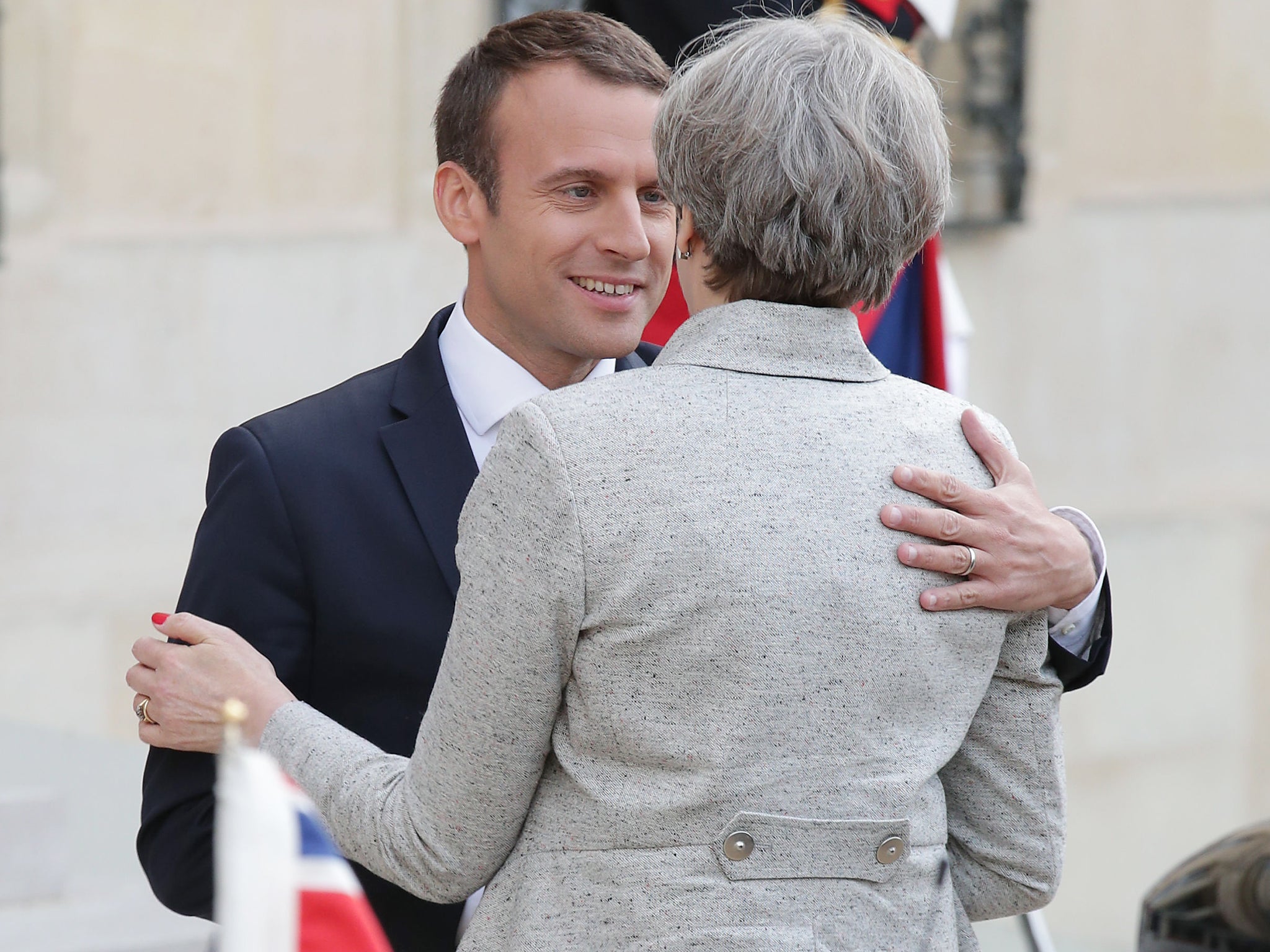Macron may say that the UK can stay in the EU, but Brexiteers will make sure that never happens
Britain's economic performance will continue to deteriorate during the Brexit talks. But unfortunately I don't believe that will sway the Leave supporters who voted with their hearts, not their wallets


Your support helps us to tell the story
From reproductive rights to climate change to Big Tech, The Independent is on the ground when the story is developing. Whether it's investigating the financials of Elon Musk's pro-Trump PAC or producing our latest documentary, 'The A Word', which shines a light on the American women fighting for reproductive rights, we know how important it is to parse out the facts from the messaging.
At such a critical moment in US history, we need reporters on the ground. Your donation allows us to keep sending journalists to speak to both sides of the story.
The Independent is trusted by Americans across the entire political spectrum. And unlike many other quality news outlets, we choose not to lock Americans out of our reporting and analysis with paywalls. We believe quality journalism should be available to everyone, paid for by those who can afford it.
Your support makes all the difference.At last there is a bit of good news for those of us who view Brexit as a massive disaster in the making. No, if readers will forgive the double negative, I am not referring to the recent election result, although that was not unhelpful. But rather to what President Macron told Theresa May in Paris on Tuesday afternoon – that the possibility of the UK remaining in the European Union is an option until Brexit negotiations have been concluded.
Adding to the significance of this statement was the fact that the German Finance Minister Wolfgang Schäuble said much the same thing on the same afternoon. Referring to the British, he observed: “If they want to change their decision, of course they would find open doors, but I think it’s not very likely.” He was speaking to Bloomberg Television.
What this means is that we can stop the process immediately if we so wish. This is a big surprise. For instance the well-informed commentator on the Financial Times, Martin Wolf, wrote just before the announcements that “unfortunately, it might be difficult for the UK to withdraw its application to leave.” Now it turns out that it would not be difficult at all.
Given the strong Franco-German relationship on European matters, this looks like a deliberately coordinated initiative taken in response to the British election result. The two leaders had jointly decided to leave the door slightly ajar.
However, for the time being, we Remainers will have to keep this possibility in the back of our minds. For there is as yet scarcely any sign that British voters want to exercise this option. After all, over 80 per cent of voters have just supported the two parties, Conservative and Labour, which intend to take Britain out of the European Union. And according to a CNN/ComRes poll taken six months after the referendum, some 47 per cent of British voters said they would vote Leave, with 45 per cent saying they would choose to Remain.
Yet only a quarter of them (24 per cent) said they thought they would be personally better off financially as a result of Brexit. By contrast, nearly half (44 per cent) said they personally expected to be worse off financially. The other third (32 per cent) of respondents said they didn’t know.
Now this stance of voting according to your heart rather than your wallet is about to be challenged. For economic conditions are deteriorating largely as a consequence of the Brexit decision that has weakened the exchange rate between pounds and euros.
Yesterday, the most recent figures for prices and wages were published and they showed the biggest decline in real wages since August 2014. In the three months to April, average wages grew by just 2.1 per cent compared with prices rising by 2.7 per cent in that period. And this supports what the vast majority of economists expect. The decision to leave the EU will hit growth in the medium to longer term. And even more miserably, it turns out that between 2007 and 2015 the UK had the worst real wages performance of any advanced economy except Greece.
We can assume, too, that as the Brexit talks wind on, Britain’s economic performance will continue to deteriorate, not just because the pound will remain weak to the detriment of people’s spending power, but because business managers will postpone decisions to invest in expansion until the terms of any exit from the European Union are known.
Nonetheless I must be frank and state that, unfortunately, I don’t believe that any of this is going to affect support for Brexit, counter intuitive though that may be. The Leavers took an emotional decision rather than one of calculation.
However there is one more factor that will determine whether the door left ajar by the French and German leaders will be pushed open in time – the attitude of the young voters.
They are mostly Remainers rather than Leavers. In addition the recent general election has taught us that they are much more likely to vote than was formally the case. Thus if any group of electors were to feel inclined to heed the gesture of the French and German leaders, it is the 18 to 40 year olds. It may not be too much of an exaggeration to say that the future of our country is in their hands.
Join our commenting forum
Join thought-provoking conversations, follow other Independent readers and see their replies
Comments